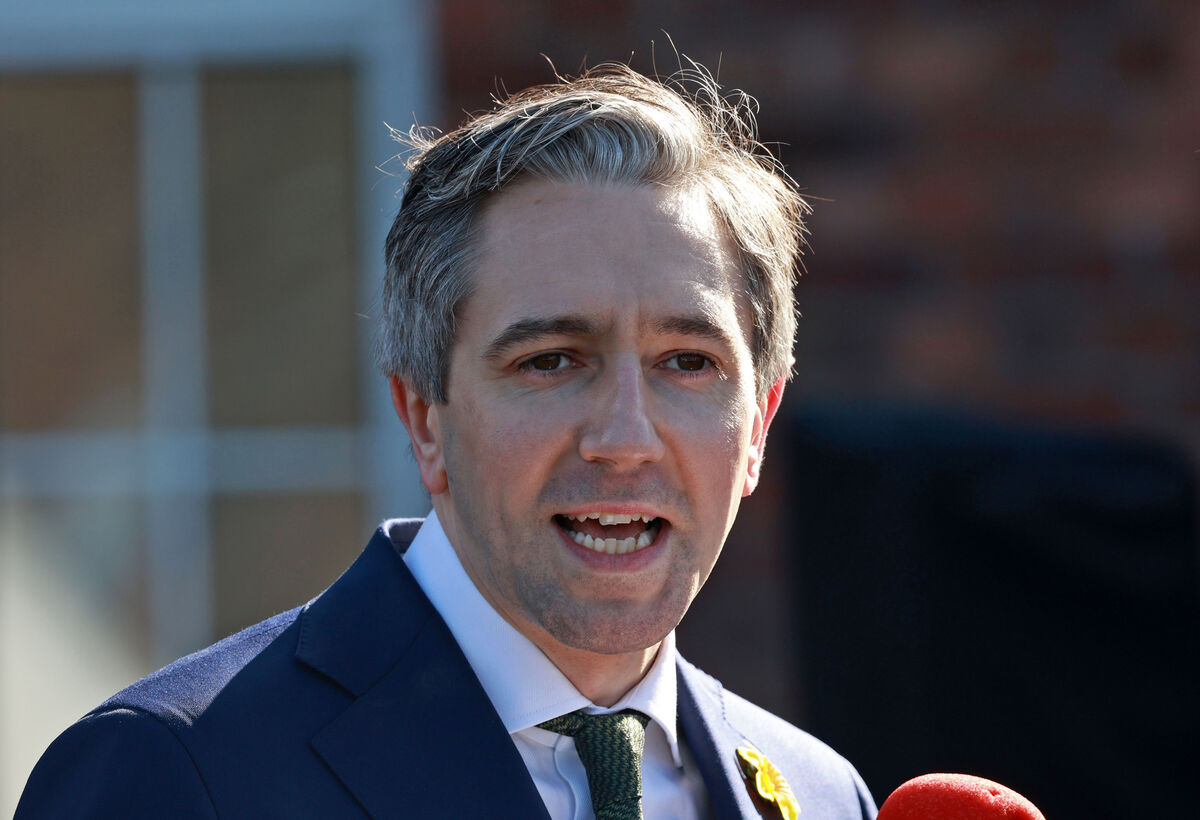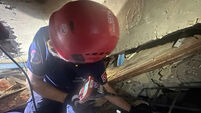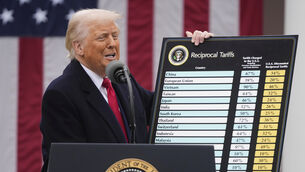Tánaiste vows crackdown on social media age verification to protect children online

Mr Harris said the response to 'Adolesence', which centres around a 13-year-old boy accused of the murder of a classmate, has 'made me more determined than ever to address an issue that requires an all-of-Government and all-of-society response'.
The Tánaiste has vowed to force social media companies to adopt age verification for users, with strong penalties to be imposed on online platforms that fail to do so.
Simon Harris has warned the "idea that the online space can be like the wild west is just not acceptable any more".
It comes after the Netflix series sparked fresh debate around how young people must be protected online. Mr Harris said as a father of two young children, he found the series "compelling, harrowing and deeply moving".
Writing in the , Mr Harris said the response to the show, which centres around a 13-year-old boy accused of the murder of a classmate, has "made me more determined than ever to address an issue that requires an all-of-Government and all-of-society response".
He said schools, communities and parents must now come together to say "enough is enough", adding the Government would provide support in "as many ways as it can" to protect children and empower young people to be their best selves, where they are free from the pressures of social media and the toxicity that too often comes with it.

Mr Harris added: "The era of self-regulation is over and in this vein I am committed to examining ways to enforce age verification obligations on online service providers and hold them to account if they fail to do so."
Last year, then education minister Norma Foley asked the online safety commissioner to explore “robust” age verification across all social media platforms.
In a letter to commissioner Niamh Hodnett, Ms Foley said it was no longer tenable for social media platforms to “stand idly by”, and said the likes of TikTok, Facebook, Snapchat and X must take responsibility for protecting younger users.
While Ms Foley acknowledged many social media platforms have an age limit of 13, she said it was very easy for children to “get around this”.
Following on from this, Mr Harris as taoiseach convened the online safety summit to ensure a collective focus across government on the implementation of the new online safety code, which sets out how video-sharing platforms must protect adults and especially children from online harm.
Mr Harris said: "The Government, in conjunction with the EU, is taking steps to regulate social media and we are committed to supporting and funding Coimisiún na Meán to enforce the online safety code."
The code, which includes measures around age assurance to prevent children from encountering pornography or gratuitous violence online, is seen as the first step in addressing inadequate social media protections.
Mr Harris said digital literacy education also needed to be part of the school curriculum as well as home environments and the Government would support and fund online safety programmes for schools and give them more flexibility in how to use that funding.
"They exploit insecurities, and reinforce outdated and dangerous narratives. The result is that a generation of boys struggle to form healthy relationships. They are less emotionally resilient and are at risk of internalising damaging ideas about gender and identity."










